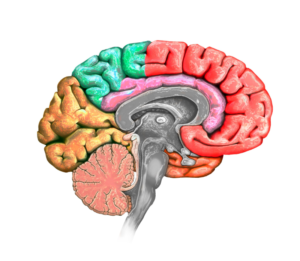Section 7d: Endocrine – Hypopituitary

Anatomy and Physiology
The pituitary gland, a component of the endocrine system, plays a central role in regulating various bodily functions by producing and releasing hormones. Hypopituitarism refers to an underactivity of the pituitary gland, resulting in insufficient secretion of one or more hormones.
Importance to Overall Health
Maintaining optimal pituitary function is vital for overall endocrine balance, growth, and reproductive health. Hypopituitarism can lead to reduced levels of specific hormones, impacting various physiological processes. Identifying and managing hypopituitarism is essential for preventing complications and ensuring proper hormonal support for the body’s functions.
Dysfunction
Hypopituitarism can result from tumors, traumatic brain injury, or other conditions affecting the pituitary gland. Symptoms vary depending on the hormone deficiency but may include fatigue, weight loss, and reproductive issues. Left untreated, hypopituitarism can lead to complications such as adrenal insufficiency, thyroid dysfunction, and growth disturbances. Recognizing signs of hypopituitarism is important for seeking medical evaluation, implementing dietary and lifestyle changes, and potentially exploring medical interventions to manage the condition and restore hormonal balance.
Nutritional Component
The nutritional biochemistry of the hypopituitary endocrine system involves the regulation of the pituitary gland, a master gland that controls the function of other endocrine glands. Key hormones produced by the pituitary include growth hormone, thyroid-stimulating hormone (TSH), and adrenocorticotropic hormone (ACTH).
- Growth Hormone Synthesis: The pituitary gland produces growth hormone, essential for growth, cell repair, and metabolism. Nutrients such as amino acids, obtained from protein-rich foods, play a role in growth hormone synthesis.
- TSH Regulation: The pituitary releases TSH to stimulate the thyroid gland. Nutrients like iodine, selenium, and zinc are essential for the synthesis and function of TSH.
- ACTH Synthesis: ACTH stimulates the adrenal glands to produce cortisol. Nutrients like vitamin C and B-vitamins support adrenal function and the synthesis of cortisol.
Science Behind Nutritional Influence
Nutrients and dietary choices significantly impact the nutritional biochemistry of the hypopituitary endocrine system:
- Protein: Amino acids from protein-rich foods contribute to growth hormone synthesis, supporting overall growth and repair.
- Iodine: Essential for the synthesis of TSH, which regulates thyroid function. Iodine-rich foods include seaweed, dairy, and fish.
- Selenium and Zinc: Support the function of TSH and overall thyroid health. Dietary sources include Brazil nuts, seafood, and nuts and seeds.
- Vitamin C: Essential for adrenal function and the synthesis of ACTH. Citrus fruits, strawberries, and bell peppers are good sources of vitamin C.
- B-Vitamins: Support adrenal function and the production of hormones. Whole grains, meat, and leafy greens are rich in B-vitamins.
Supplements
Explore the potential benefits of glandular supplements tailored to your individual health profile by setting up a free 10 minute call with Dr. Kneessi. Otherwise here are some of the most common supplement recommendations for supporting this system.
- Vitamin D: Essential for overall health and may support hormonal balance.
- B-vitamins: Play a role in energy metabolism and may support endocrine function.
- Iron: Important for individuals with hypopituitarism and coexisting iron deficiency.
- Omega-3 Fatty Acids: Support overall endocrine health and have anti-inflammatory properties.
- Adaptogenic Herbs (e.g., Ashwagandha): May help the body adapt to stress and support hormonal balance.
These supplements are selected to provide general support for individuals with potential underactivity of the pituitary gland. It’s crucial to consult with a healthcare professional, especially for those with endocrine disorders or taking medications, to ensure the supplements are suitable for individual health needs and do not interfere with prescribed treatments.




